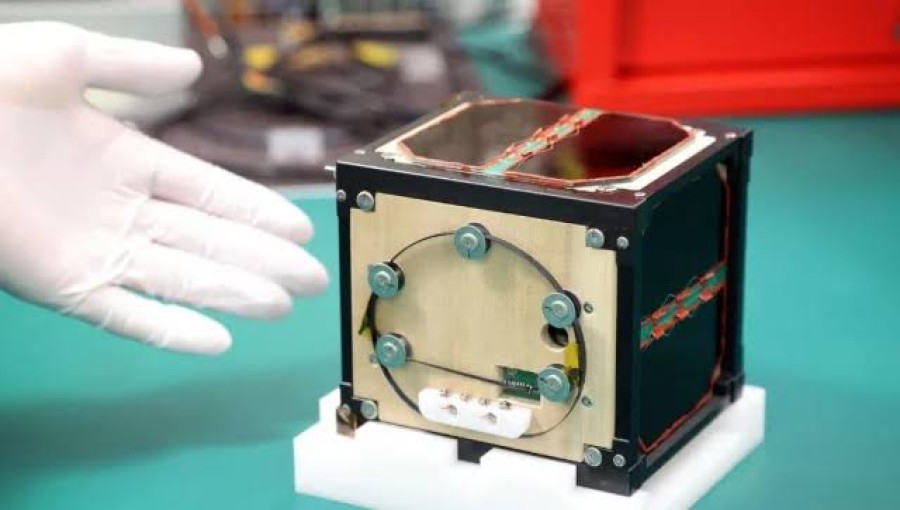In a pioneering move towards environmentally friendly space technology, Japanese scientists have developed the world’s first artificial satellite made from wood. The satellite, named Lignosat, was created by researchers at Kyoto University in partnership with the logging company Sumitomo Forestry. Measuring just 4 inches (10 centimeters) per side, Lignosat aims to revolutionize satellite construction by reducing space debris and environmental impact.
Lignosat is set to launch this September aboard a SpaceX rocket from the Kennedy Space Center. It will journey to the International Space Station (ISS), where it will be deployed from the Japanese ISS Test Module to undergo rigorous testing of its strength and stability in space.
The initiative to build a wooden satellite comes in response to growing concerns about the environmental impact of metal satellites. Upon re-entry into the Earth's atmosphere, metal satellites often leave behind debris that can harm the environment and interfere with telecommunications. In contrast, the Lignosat, constructed from magnolia wood, is designed to completely burn up during re-entry, leaving no harmful remnants.
Professor Takao Doi of Kyoto University, who leads the research team, explained that the concept was inspired by the need to address these environmental issues. “Non-metal satellites should become mainstream,” Professor Doi emphasized during a news conference. He added that the Lignosat’s design ensures it will not contribute to space debris or atmospheric pollution at the end of its operational life.
Next week, the Lignosat will be handed over to the Japan Aerospace Exploration Agency (JAXA). Once in orbit, the satellite will transmit data back to researchers, who will monitor for signs of strain and assess its ability to withstand the extreme conditions of space, including significant temperature changes.
A spokesperson for Sumitomo Forestry highlighted the importance of this innovation, noting that the data collected will be crucial for evaluating the feasibility of wooden satellites in future space missions.
This groundbreaking project marks a significant step towards more sustainable space exploration and sets a precedent for the development of eco-friendly satellite technology. If successful, wooden satellites like Lignosat could become a new standard in the aerospace industry, minimizing environmental impact and promoting sustainability in space.































Comment: